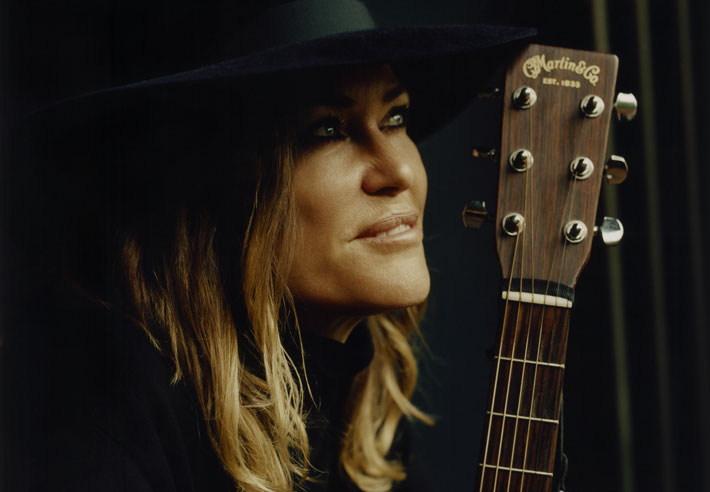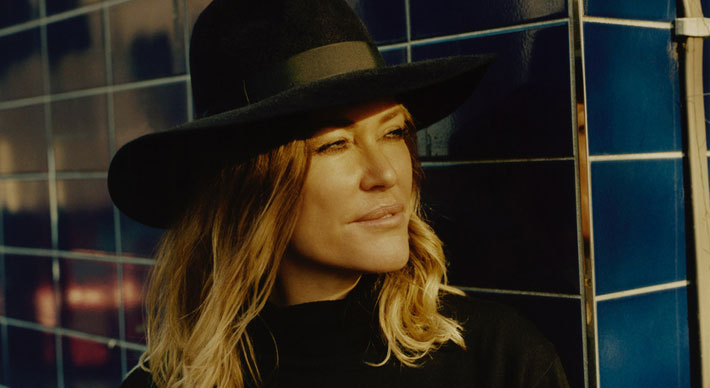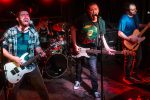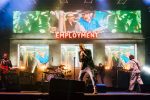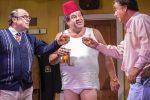An Interview with Cerys Matthews
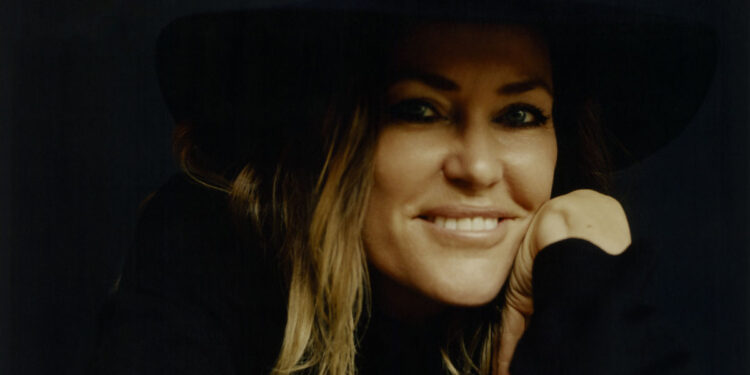
By Charlotte Oliver
Best-selling author, award winning DJ and multi-million selling musician Cerys Matthews’ new album, ‘We Come From the Sun’, is no ordinary collection of songs; the album features the words of 10 poets set to music by Matthews and Hidden Orchestra. Here, Cerys talks about the project, poetry’s working class roots and the perils of setting verse to music…
What was the inspiration behind We Come From the Sun?
Well, you know how in that film (Dirty Dancing) it says ‘Don’t put baby in the corner!’? That’s a good place to start because, just by thanks of where I was born and my culture, poetry’s very much alive and well. And it’s not just stuck in a book and it’s not just about memorising it but it’s taken in the same way as you would enjoy a sing-a-long in the pub. They used to write poetry and it wasn’t just academics or the elite, it would be working class people, farmers and miners, who would compete with their deftness of hand, their wits or their turn of phrase and they would meet in pubs and that’s my attitude to poetry. I think when you say the word ‘poetry’ too many people put it in the corner and this was something I didn’t really feel was doing it justice because poetry is everywhere, like slogans and manifestos, graffiti and, y’know, a skip when you’re feeling good or a leaf on the wind, all of it. We’re surrounded by poetry if you look at it that way and there’s a lot of great stuff coming out at the minute because, I think, there’s more and more great stuff comes out when more and more people, or the world, are undergoing changes and we’ve had ISIS and Brexit, Climate Change and this pandemic now, and people have the urge to write and respond. So I though it would be good to have this celebration of voices and perspectives and that’s what We Come From the Sun is all about.
“Literary saloons”
Was it a hard sell to get the record label interested in something that had the word ‘poem’ involved because of the idea of some people thinking that poetry isn’t for them?
I think a lot of people are put off by the word [poetry] but Decca Records were not. I’ve been working with them on their spoken word archive, so the likes of W.B. Yeats or Lord Tennyson or Ted Hughes, Sylvia Plath, all these extraordinary poets that they recorded and have in their archive, and that’s the genesis of this idea – because they were recorded, these great writers, I felt like we should also be recording this era’s writers to fill the archives, so they were really, really positive about it. It is difficult because people do see the word ‘poetry’ and go snore but, you know, your favourite song or nursery rhyme or rap music, alternative hip hop, it’s all poetry, guys! I’ve been celebrating it and doing this dance on live radio to, what, 7-800,000 people a week whether they like it or not, putting poetry to music. But then so did Allen Ginsberg and so did Richard Burton, and Dylan Thomas, even Peter and the Wolf, and for the last forty years so have hip hop artists and then even before that the bards that accompanied themselves as they recited their epic poems to mobilise armies. It’s not radical in that sense but it is radical that mainstream youngsters are taking it as natural, certainly in London and I get the feeling that there are a lot of spoken word events in a lot of literary saloons coming up all over the country and that is exciting! This is just a by-product, in a sense, I’d like to be one in a multitude that is celebrating this openness and this love of the power of a good turn of phrase.
“Strident and powerful”
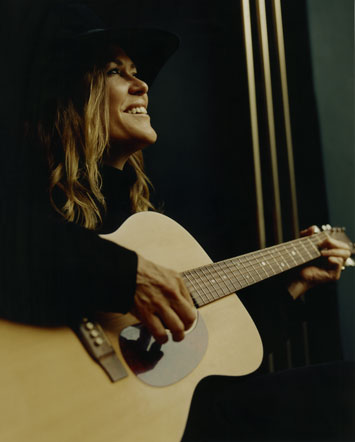 How did you and Joe (Acheson of Hidden Orchestra) set about putting music to the poets’ words?
How did you and Joe (Acheson of Hidden Orchestra) set about putting music to the poets’ words?
Well, the worst thing we could have done would’ve been to suffocate the poem, so the poem has to lead. Always. I listen to a poem, a reading of a poem or I listen to the sounds of a poem when I read it in my mind and I can hear what music would work with it well, rather than suffocate it. Some poems need barely anything – so Kim Moore’s poem ‘And the Soul’, which is on the album, is this poem about the inner world of a human, your inner soul, your inner voice. We just wanted to envelop the listener in the inner world of a human body so we’ve got a heartbeat and valves and it’s one of my favourites, I love it so much! It’s kind of pagan in its own way, very unaffected and very to the point, and that’s why we just went with the basic sounds of a human and it’s powerful. And then something like ‘Flame Lily’ is the opposite so, Belinda, or MA.MOYO, she came into Abbey Road and this was one of the curveball ones that I hadn’t intended to have on the album but ended up lending the album its title and kicking it all off. It’s so strident and powerful so we didn’t change the rhythm at all – it was exactly as Belinda recited it. It already had its own boundaries and framework and, I said to Joe, what we need on this is totally strident, unashamed, “eff off” drums to second what Belinda’s doing and to stop when she pauses and it’s just… it’s mammoth.
Yes, it is an amazing piece, isn’t it?
It is and, for me, it begins the album with the idea of an emergent being, but the statement is we don’t all emerge from a vacuum – we are all here on the shoulders of our ancestors, from the layers of life that have come before us and I thought, ‘Oh my gosh, that’s the beginning for us!’
What do you most hope that people will get from the album?
That they don’t put baby in the corner! I think if it adds wings and gets it [poetry] into places where it normally is shut out then that’s my job done. And if new listeners get to know these writers, that’s my job done. And if it, for a minute, helps people escape from the humdrum that’s my job done.
“I just wanted to shock them”
I would really like to see all of this performed live, please. Are there any plans?
Ah, y’know, pre-COVID we were all going to go on tour around the country, picking up poets and dropping them off just like some Allen Ginsberg, Bob Dylan caravan of the seventies, really Beat Generational over again. We’re still hoping that that might happen because it will lend itself well to a live arena, totally. I was taken on as the Artistic Director of the World Music Expo in Cardiff and it was huge – we had visiting diplomats and industry people from all over the world and I just wanted to shock them all so, what could I do? Well, I put the lights down in the auditorium. Black. And I had surround sound and I started with some of the earliest texts in Early Welsh that I could and I basically started off the whole evening with some epic poetry with a huge stick that they used to use to bash down all the rhythms within the epic poem. It was so good! In short, damn yes! I’d love to put it on the stage because that’s really what it’s about, poetry or words being a very powerful way of communicating and that’s best done in a room with live people. We’re hoping, we‘re hoping…
Cerys Matthews’ album ‘We Come From the Sun’ is out now
